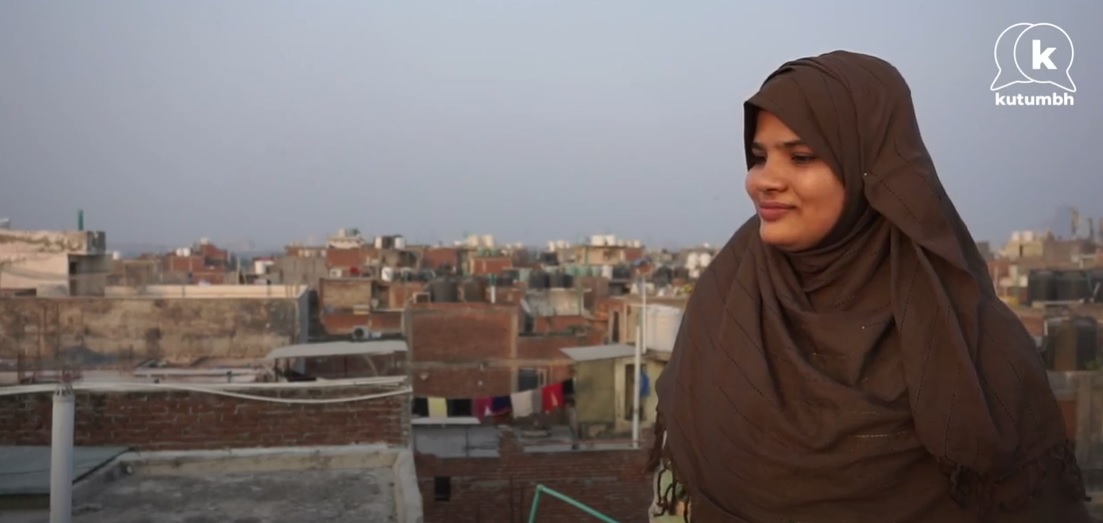Fled from Myanmar in 2005 following persecution and discrimination against the minority, she is now the first Rohingya girl to achieve this goal in the country. And her story gives hope to young girls who, like her, have the desire to study and go to school
Tasmida Johar – a girl belonging to the Rohingya ethnic group, the Muslim minority that numbers hundreds of thousands of exiles from Buddhist Myanmar – holds a degree in political science from the University of Delhi. She is the first Rohingya refugee woman to attend school and graduate.
For years now the Rohingya have suffered a brutal military repression which according to the United Nations was carried out with a “genocidal intent” by the Tatmadaw – the Burmese army – destroying entire villages by setting them on fire and leading to an exodus which only in its last wave, which took place in 2017, involved more than 700 thousand people. Most fled to Bangladesh, turning the Cox’s Bazar district into the largest refugee camp in the world.
Tasmida – 26 years old, born in Myanmar as Tasmin Fatima – told Al Jazeera of how her parents had to change her name: «In Myanmar you cannot go to school and receive an education if you don’t have a Buddhist name. I feel happy about the headlines about me, but at the same time it also makes me sad. I am happy to have come this far, but it saddens me to be the first to do so when so many Rohingya women wanted to get to this position but failed », she adds, recounting the discrimination in schools in Myanmar.
“If you got first place in school, they didn’t give you the prize if you weren’t a Buddhist,” says Johar. “Madrid numbers were assigned first to the Buddhist children and then to us and we weren’t allowed to speak loudly, we always had to sit at the back of the class. We were also forbidden from wearing the hijab to school. If the authorities discovered that a Rohingya owned a business, they were attacked and imprisoned,” he added. My father had a fruit and vegetable exporting and selling business. Very often he was arrested and released only after the police had stolen his money.’
In his book Tasmida: Journey of a twice displaced Rohingya girl she tells of the journey she and her family fled from the Rakhine state in which they lived, first to Bangladesh and then to India, thus seeing themselves displaced a second time. As the persecutions increased, the family left Myanmar in 2005. In Cox’s Bazar, the father started working as a laborer at 64, while the mother, 56, in a local factory. Tasmida – who had studied up to the third grade – also had to start over and learn Bengali, Urdu and English and later also Hindi.
In 2012, after facing targeted violence against the Rohingya community in Bangladesh, the family decided to move to India, first arriving in Haryana in northern India and then in Kalindi Kunj camp, southeast of Delhi. In India there are nearly 20,000 Rohingya refugees registered by the United Nations, some arriving even before 2017; more than a thousand live on the outskirts of New Delhi. Even in India, worries and fears have not disappeared: «I didn’t want my identity to be revealed to all the children at school, because I didn’t want any special treatment nor did I want to face indifference or be called a terrorist. For this reason, most of the time I remained closed in on myself.
Especially since the Hindu nationalist party came to power in 2014, the Rohingya are also victims of hate speech and attacks; last year the government declared its intention to keep them in detention camps until they are deported to Myanmar – an act that would violate the principle of non-refoulement enshrined in the 1951 Geneva Convention on refugees, of which, however, l India is not a signatory.
“Many times I couldn’t find a seat on the bus, but this was nothing compared to what we had faced – continues Tasmida -. Rohingya refugees who send their daughters out to study think ‘what if the government takes them? And if they were kidnapped, raped or sold?’. Because of this, there is a constant concern for one’s children.’ So most of the children in her neighborhood study in the fields or at home.
“Now people in my community have seen the headlines and realized that they too can be seen. Suddenly I started getting comments like ‘we knew she was going to make it’ and ‘our daughter will become like yours too’ ». “The reason my mother supports me is Tasmida. She now understands that and she gives me permission to go out and study more,” confirms Mizan Hussain, 21.
Tasmida is one of 25 refugee students selected by the UNHCR-Duolingo program to help underprivileged and academically brilliant people continue their higher education. At present, she is awaiting an acceptance letter from Wilfred Laurier University in Canada and she says she wants to become a human rights activist in the future. “I want to fight for the rights to education and health of oppressed women and raise my voice against the trafficking of girls. My dream is to go to the International Court of Justice and tell the story of the Rohingya refugees. It is only right for a Rohingya to take the mic and tell the truth, as we have been canceled.”
The image accompanying the article is taken from this video-testimony of Tasmida available online
